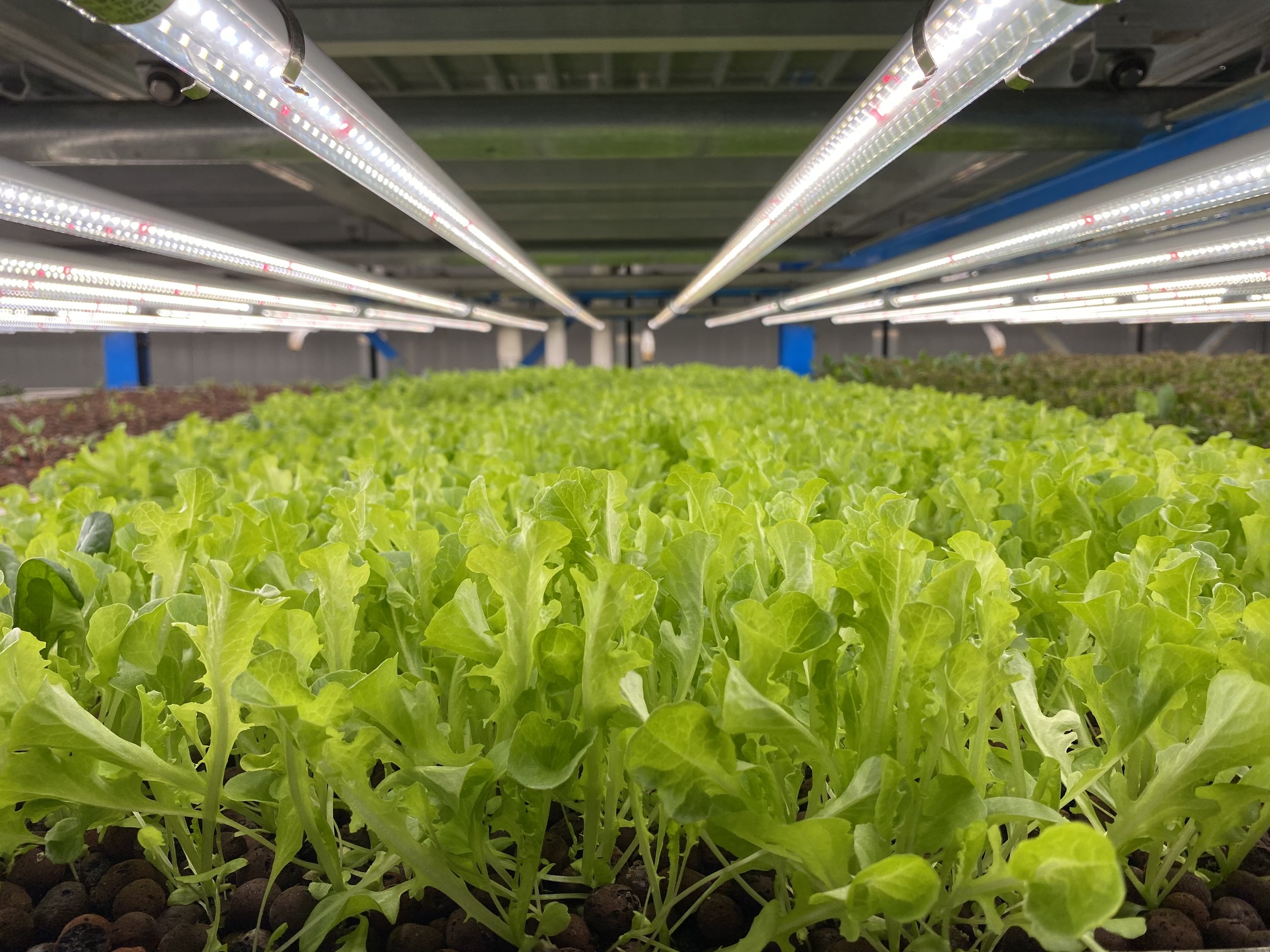
Our primary goal is to pioneer a sustainable agriculture industry through the development of economically viable, climate smart produce.
Where farming and sustainability meet
At The Farm to Table Co., foods will be grown in a way that uses minimal natural resources while simultaneously combating climate change.
Construction of a controlled environment agriculture farm employing North America’s first fully sustainable process will result in increased food production without expanding agricultural land, thus protecting valuable natural resources and reducing agriculture-related greenhouse gas emissions.
What makes our process different?
-
Our process is 50 times more land-efficient than traditional agriculture. As our population grows, it is crucial that the land we use to grow our food is maximized.
-
Our crops will be grown using 95% less water than traditional crops because in our process, no water is wasted. Using state-of-the-art technology, we can ensure that our crops get only as much water as they need and not a drop more.
-
Because there are no pests or weeds, there is no need for pesticides or herbicides. With our process being designed to mimic nature, additional inorganic fertilizers are not required. The crops are, by nature, grown organically.
-
Nearly 40% of all food losses happen before the food reaches the consumer, with most happening at the field level. Because our produce is grown in a controlled environment and will arrive at distribution centers within 24 hours of harvest, overall food waste will be reduced by up to 80%.
-
Our process combines pure, sustainable organic nutrients with beneficial microbes normally only found in the best farm land to create an organic growing environment. The result is the only hydroponic process that can be certified USDA organic.
-
Because our farm will be highly automated, we will require fewer employees. Unlike traditional farming, we will operate year-round to create meaningful, high-impact jobs.
-
In recent years, there have been several E. coli outbreaks linked to the washing of green, leafy vegetables. Because our produce will be grown in a soilless substrate inside a confined growing chamber, the vegetables will not need to be washed. This alone can prevent food borne illness outbreaks.

